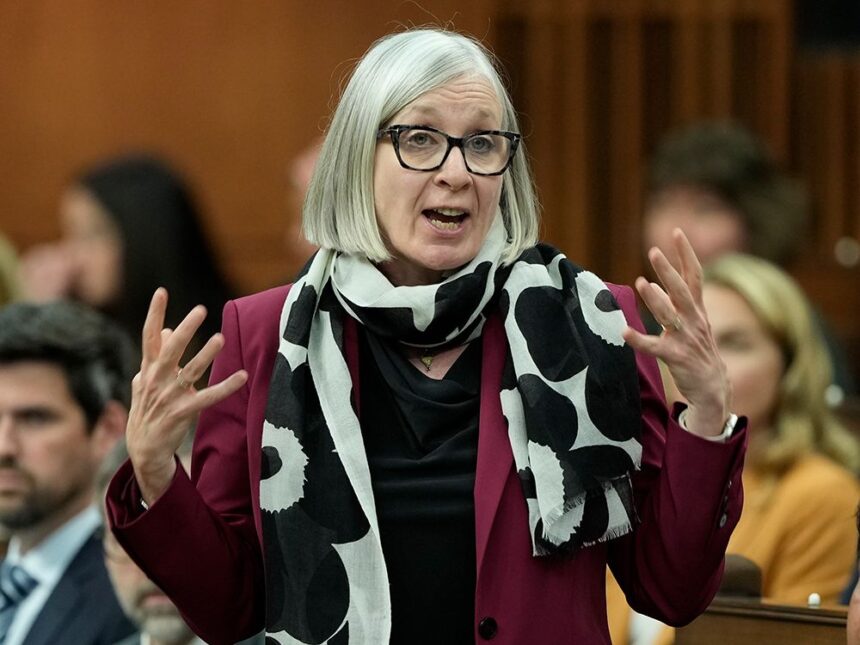As the pale morning light filtered through the windows of my Montreal apartment, I found myself poring over a stack of United Nations documents that had landed in my inbox the previous evening. The correspondence painted a troubling picture: international human rights experts had expressed serious concerns about Canada’s Medical Assistance in Dying (MAiD) program, particularly its 2021 expansion to include those whose deaths aren’t reasonably foreseeable.
For many Canadians, MAiD represents compassionate care and personal autonomy. But the UN Committee on the Rights of Persons with Disabilities sees something more alarming – a system they believe may violate fundamental human rights principles.
“When I examine the committee’s language, their concern is unmistakable,” explains Catherine Frazee, professor emerita at Ryerson University and longtime disability rights advocate. “They’re essentially saying Canada has created a two-tier approach to suicide prevention – one for most citizens, another for those with disabilities.”
The UN committee’s communication to the Canadian government wasn’t subtle. They warned that Canada’s expanded MAiD program could reinforce prejudice that “life with a disability is a life not worth living” – language that has sent ripples through disability advocacy communities nationwide.
My investigation into this story began after obtaining internal communications between the Justice Department and Health Canada through access to information requests. These documents reveal that federal officials had received the UN’s critiques months ago but have yet to formally respond. When I contacted the Minister of Justice’s office, their statement characterized the concerns as “noted” but offered no substantive response to the specific human rights violations alleged.
Trudo Lemmens, professor of health law and policy at the University of Toronto, told me during our interview that Canada’s international reputation on disability rights is suffering. “We’re witnessing a dangerous precedent where Canada is effectively ignoring binding human rights obligations it has voluntarily accepted,” he said, pointing to the UN Convention on the Rights of Persons with Disabilities that Canada ratified in 2010.
The numbers tell their own story. Since MAiD’s expansion in March 2021, disability support organizations report a concerning pattern of people seeking assisted death primarily because they cannot access adequate housing, income support, or healthcare. The Disability Rights Coalition of Canada shared data with me showing that at least 35% of MAiD recipients in the last year cited “burden on family and caregivers” as a contributing factor.
“People aren’t choosing to die; they’re choosing to end suffering that society has failed to address,” says Sarah Jama, executive director of the Disability Justice Network of Ontario. “When someone can’t access a $400 breathing device but can access MAiD within weeks, what kind of choice is that?”
Court documents from a recent British Columbia case highlighted this dilemma. A 43-year-old woman with multiple chemical sensitivities was approved for MAiD after failing to secure affordable housing that could accommodate her disability. Her physician’s assessment, which I reviewed, noted “insufficient social supports” as a factor in her request.
The federal government has defended its position by emphasizing that the program includes safeguards to ensure free and informed consent. Health Canada’s website states that “MAiD is a deeply personal decision” and that “eligibility assessments are conducted with great care by medical professionals.”
Yet the UN committee’s findings suggest these safeguards may be inadequate. They explicitly questioned whether truly free consent is possible “when the option of living with dignity is limited by inadequate community support and services.”
I visited three independent living centers across Quebec last month, speaking with dozens of people with disabilities about their perspectives on MAiD. Many expressed fear that the program, while well-intentioned, creates subtle pressure to consider death rather than continue struggling with inadequate support systems.
“I’ve been asked three times if I’ve considered MAiD,” Marie Lalonde, a 56-year-old Montreal resident with progressive muscular dystrophy, told me. “Not by family, but by healthcare providers. How is that not coercive?”
The tension between autonomy and protection lies at the heart of this debate. Canada’s Charter of Rights and Freedoms guarantees equality and personal liberty – values that MAiD advocates emphasize. However, international human rights frameworks suggest these values must be balanced with special protections for vulnerable populations.
The government’s apparent dismissal of UN criticism raises troubling questions about Canada’s commitment to its international human rights obligations. When nations ratify UN conventions, they agree to implement recommendations from oversight committees and engage in good-faith dialogue about concerns.
As I finished reviewing the documents spread across my desk, one thing became clear: this isn’t simply a domestic policy disagreement but potentially a significant retreat from international human rights standards that Canada helped establish.
Whether Ottawa will eventually address these concerns remains uncertain. What is certain, however, is that the lives and dignity of Canadians with disabilities hang in the balance while we wait for an answer.






